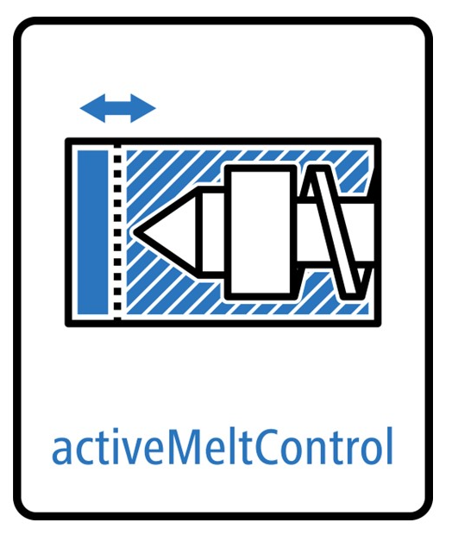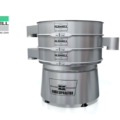Sumitomo (SHI) Demag has launched a new digital feature integrated into the company’s IntElect 2 series. Automatically adapting to the injection moulding process, activeMeltControl can compensate for melt viscosity variations in nearly all applications and materials, including recycled plastics. Resulting in significantly reduced reject rates.

The new activeMeltControl feature Is now available to UK and Ireland customers with IntElect 2 machines to compensate for viscosity fluctuations and backflow barrier leaks .
Recently unveiled at the company’s European roadshow, activeMeltControl (aMC) has been described as a game changing feature by material and processing experts. Automatically adapting to the injection moulding process, aMC continually monitors for variations in holding pressure and switch over position. Once a parameter is identified as drifting towards the tolerance limits that have been set by the user, aMC automatically amends the set parameters to compensate for the variation. The adjustment bandwidth is also defined by the processor.
The background for this development, which Sumitomo (SHI) Demag has vigorously pursued over the past four years, is driven by changing quality of plastics due to fewer virgin materials and more recyclable content. “Many customers have requested a digital solution to compensate for these variations when manufacturing precision parts using our highly efficient all-electric machines. That’s why we introduced aMC as a completely independent software module that complements our established active modules,” explains the company’s Product Manager for Digital Solutions, Dr. Thomas Schilling.
“With aMC, we can now automatically adapt to melt viscosity variations in nearly all applications and materials. These variations may be due to batch fluctuations, recyclables, regrind, drying differences, dosing variations, or the use of additional additives,” highlights Area Sales Manager Ashlee Gough. For example, variations in the melt flow index (MFI) in 100% recycled material can now be corrected by the software. Meaning that the process stability is now comparable to a process that uses virgin material.
This offers processors greater manufacturing flexibility, allowing for the use of a broader range of post-consumer and post-industrial recycled material types. Even customers with defined processing references benefit, as aMC instantly addresses any variability to maintain absolute processing precision and stability.
“Some of the challenges of running a reprocessed material in comparison to a virgin polymer material is these need to be manually adapted and played with during processing. The introduction of technologies like aMC allows processors to monitor the melt flow of material throughout a batch which enables adjustments to be made automatically rather than being manually controlled by a setter,” notes Isy Ferguson, Managing Director at Hardie Polymers
Another advantage of aMC is it only sets the limits for holding pressure and switch over position. This means it can be used in all industries, including those where there are defined tolerances for validated process parameters that cannot be exceeded or overridden by machine operators. “In terms of production stability, this innovation can make a big difference to productivity and processing continuity,” assures Ashlee.
Achieving more consistent part weights within a processing batch means that the ROI can be exceptionally fast, claims Gough. Additional benefits include better process consistency, longer machine uptime, and reduced scrap. All of which contribute to greater productivity and sustainability.
Activated with a single click, aMC is a fully automated control process that is integrated into the Sumitomo (SHI) Demag IntElect machine’s control system. It is available as an optional extra on company’s newest IntElect 2 machine series. It can also be retrofitted to older IntElect 2 machines too.





